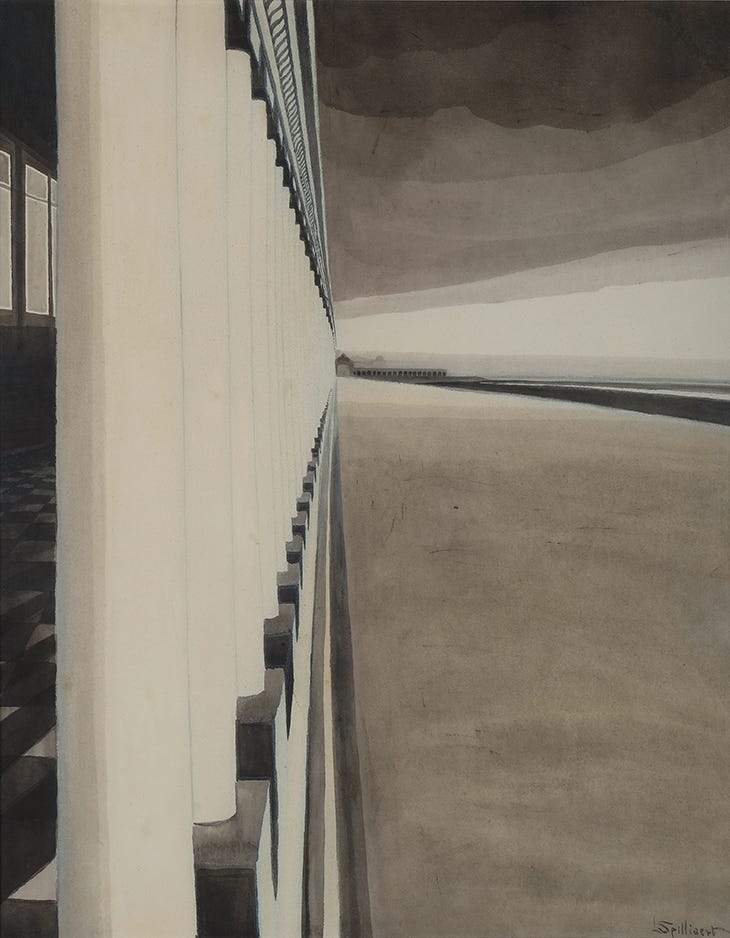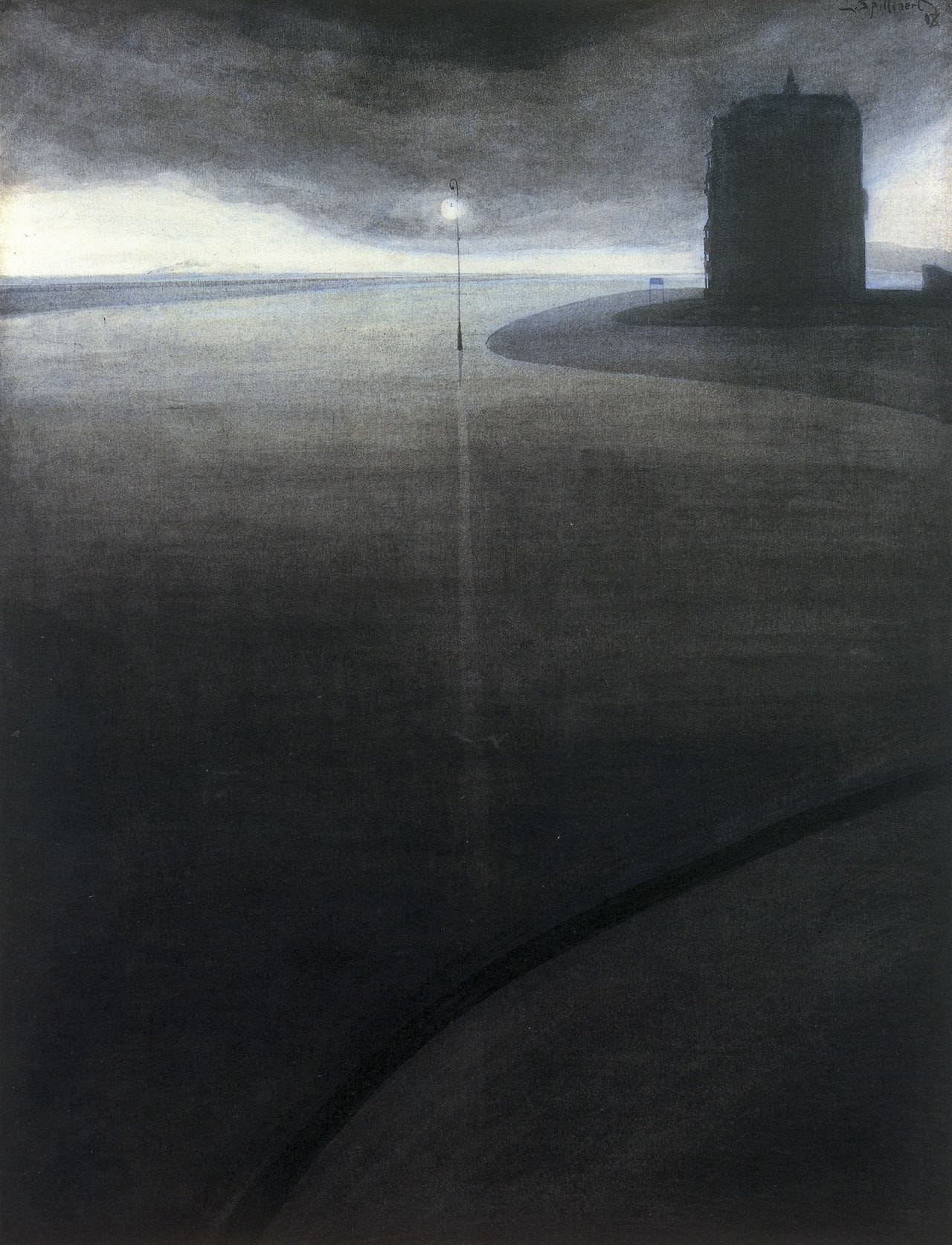'17776' by Jon Bois and the Slow Cancellation of the Future
What happened to the future of science fiction?
On a hot summer day in 2017, I was killing time at the airport when I stumbled across a mysterious Facebook link simply titled “17776”. Before long, I was downloading as many webpages from the site as I could. Because 17776 had already become the most exciting story I had ever read. I did not want to board that plane.
At first, 17776 appears to be not a sci-fi novella but a slightly suspicious NFL article on sbnation.com. But as you scroll, it warps, changes, shifts, and then… well, the only way to really understand is to experience it yourself.
Once I started scrolling down a literal calendar, I was convinced: this was the future of media. After experiencing a story through a medley of videos, scripts, and Google Earth gifs, how could I ever go back? How could anyone go back? This was a book that would stop even the most skeptical reader in their tracks. I didn’t expect 17776 to become the norm, but I expected the rise of a genre that would make it less of an oddity, similar to how Worm inspired a genre of successors a few years prior.
But when its sequel 20020 arrived three years later, not much had changed. And a year after that, the scheduled release year of the still-unfinished sequel 20021, things had perhaps changed in the other direction. The media landscape feels less novel than it did when 17776 appeared in that summer heat of eight years ago. So what happened? What happened to the 17776 future we were promised?
The Internet used to be cool
Internet theorist
has frequently echoed the sentiment that “we are still in the early days of the Internet”. The idea is that we still apply the old rules of engagement to the Internet, despite the paradigm shift that it represents. 99% of Internet media is still just text, audio, and video, just through a personalized screen.17776 was released at a time in Internet history that really felt like those early days. I spent a lot more time in the depths of Internet than most of my peers, and I always felt like I was seeing something more explosive and dynamic than they were. Every year, a new fascinating technology seemed to bring us closer to that digital utopia.
In the early 2010s, Google released all these cool demos called Chrome experiments in order to promote their new browser. One example was the World Wide Maze, which allowed you to turn any webpage into an interactive 3D maze that you could control with your phone. I remember running downstairs on a particular morning and playing with it all day with my family, reveling in the atmosphere of digital innovation. Even though I was too young to understand the technological significance at the time, the triumph of Chrome felt like a win for innovation, another step towards utopia.
But Google wasn’t the only source of experiments. My most novel online experiences were all on Reddit, which hosted a streak of April Fools experiments that showed me what was possible. One example was /r/joinrobin, a short-lived experiment that would throw you into a chat room with a random other person. In this chat room, you could vote to either disband, stay, or merge with another chat room of similar size. This process would iterate until you were packed into a chat with hundreds of strangers, the chat moving at light speed. It’s hard to do this concept justice without a visual, but I saw entire mini societies spring up within the confines of those digital rooms. The simultaneity and group participation of it all made it something truly special.
17776 still felt revolutionary in this context, but it also felt like the latest in a long line of digital innovations. It’s hard for me to convey the techno-optimism I felt in 2017; sometimes I find it hard to remember myself. But there was something in the air. Augmented reality was just around the corner. A not-yet-disgraced Elon Musk was landing reusable rockets. And now, Jon Bois was showing us the future of storytelling.
Mark Fisher’s slow cancellation of the future
Mark Fisher was a political theorist who coined the phrase “slow cancellation of the future”, which suggests that our image of the future stagnated in the 20th century and alternatives have since become difficult to imagine. For whatever reason, the past few decades have made it hard to think outside the confines of 20th century ideas. But the change has been so slow and so subtle that many of us never even noticed.
My favorite discussion of this concept is a fantastic conversation between digital art academic
and frontman of The 1975 Matty Healy. They focus mostly on music, but the general concepts are the same. The paradigm shifts of the 21st century made the latest music almost incomprehensible if you brought it to earlier generations. Look no further than the iconic Back to the Future electric guitar scene.But what would today’s equivalent of the electric guitar scene be? Ten years from now, musicians are still going to be using DAWs to make songs like they did ten years ago, and probably the same ones, too. They might use better sample packs, but the general picture will still be immediately recognizable to us. And this does not bode well for at least the felt sense of innovation. Music may not be the same as sci-fi literature, but it is a useful microcosm of the cultural stagnation that has occurred in the digital world.
The actual setting of 17776 was heavily influenced by Fisher’s ideas. It imagines an America that has fallen into stasis after its citizens lose the ability to give birth but gain eternal life. By the time the story begins, several millennia without new blood have neutered American vitality and vigor. Everyone with that mortal human spark—the envy of the elves—has already chosen death. Americans may still grill and play football, but they are not even remotely interested in the stars.
At a certain point in the story, the protagonist Nine asks why humans haven’t made any technological progress in the past few millennia. The answer isn’t particularly warm and fuzzy:
You haven’t been awake for long. I think you underestimate how exhausting it is to think big. You can only hold grand ambitions above your shoulders for so long before you get tired.
They got tired. Some lasted longer than others, but they all got tired.
Now they are resting in a moment that will last until the end of time.
—Ten (17776 by Jon Bois)
One of the most interesting things about 17776 is how its setting can seem bleak or comforting depending on your outlook on life. From some perspectives, 17776 seems like a sort of heaven. After all, everyone has their needs met! But most of the time, it feels more like purgatory. Nine’s horror at the state of the world is understandable.
In order to cope with the monotony of daily existence, the people of 17776 dream up increasingly ridiculous sports and other forms of amusement to satisfy the only human need left: a reason to go on.
One such example is Game 96249. In Chapter 6, podcast hosts Thuy and Rodger talk about particularly egregious games of football. Game 96249 is played on a field with a normal width but a length going all the way from Mexico to Canada. The designers did their best to create a forgiving terrain, but it unfortunately still runs straight over a massive ravine. Once the ball falls down the ravine, the game reaches an impasse. Even the best free climber of their time wouldn’t be able to get up a 300-yard sheer cliff with eleven defenders in pursuit.
As Ten says:
I think they’re doing the best they can with immortality. A human being will rarely admit this to you, but they tend to be terrified of living forever. They were born and raised with the understanding that their lives would end. They’ve achieved everything they wanted to achieve, all the ills that plagued them.
And now boredom is their only enemy. And they get up in the morning and fight it every day of their eternal lives. Recreation and play sustain them. Football sustains them. And if you find yourself in a football game that’s such a gargantuan task, that seems undefeatable, that will claim eons of your time and your passion?
I think that makes you one of the lucky ones.
—Ten (17776 by Jon Bois)
Game 96249 embodies the simultaneously utopian and bleak reality of 17776—where people have everything they want, and yet find their lives wanting for that reason. Perhaps they are still able to imagine a different future, but at every opportunity they simply chose not to. But unlike the people of 17776, us modern humans have not gotten everything we want. So why do we find ourselves in a similar position?
The Internet as an obligation
If I had to blame one factor for the feeling of cultural stagnation today, it would be the ways in which people have been forced to engage with the digital world. In the above interview, Matty Healy notes that mediums become more artful and experimental once they decline in popularity. TV has become far more interesting after being freed from the confines of network whims and the 30-minute programming block.
On the Internet, the opposite occurred. As Internet features became not just common but expected, the Internet was made to emulate everything that’s off the Internet. And if everything that’s off the Internet goes onto the Internet, then what space is there for anything else? Instead of gaining the novelty of the Internet, we ended up just porting over a worse version of real life. The Internet is lame now, and many people long for a world where they could choose to have nothing to do with it.
The Internet has been getting more compulsory and corporatized for a while now, but COVID stands out as as an especially significant turning point. Before COVID, the Internet was more like something you could choose to use regularly, or not. There were some people who spent a lot of time online (like me), and other people who didn’t. But after everything went online, that choice was taken away.
outlines this trend in further detail in his post on the Zynternet. There was a distinct cultural shift when the rest of America really logged on. These people may have used the Internet before, but it was more of a curiosity than a place where they really lived. And at least for me, this shift was mostly negative. It’s like how STEM majors gets worse when they have to deal with an inflow of rejected CS applicants— nobody wins when more people don’t want to be there.It’s a self-fulfilling prophecy. If people all decide that the Internet is going to be lame forever and act accordingly, then it will in fact be lame forever. In the same way that cinema would suck if everyone decided that we could only make films by sticking to the conventions of stage plays, the Internet is going to suck if us consumers keep treating it like “worse real life”.
The future of science fiction is form
When 17776 first dropped, I would recommend it to everyone I knew. I figured that my friends would be just as taken in by… well… everything. But 17776 actually requires the reader to have a lot of cultural knowledge to get the most out of it, and I initially just took that cultural background for granted. You have quotes like this:
gonna be like some matthew brady shit where you can only take pictures of dead ppl because no alive person wants to be in your shitass photo
—JUICE (17776 by Jon Bois)
And this:
Right! Because, for one it's exhausting, especially if an offense sustains a drive for miles and miles on end. For another ... what happens if you blow coverage and a receiver gets past the secondary? And what if the receiver is the fastest player on the field?
Right. If the ball carrier has outrun all 11 of you, what's left to do? At that point, it's not really a football game anymore. It's like a mix between a supermarathon and a camping trip.
It's bad football. Nobody wants to play it, nobody wants to watch it. Washington and New Mexico were banking on this not being a big deal, because the field of play was so narrow. So the good news is, you know, if a player does get past your secondary, you don't have to look all over creation for them. They're gonna have to stay inbounds, so the only question is how far they've outrun you.
—Thuy and Rodger (17776 by Jon Bois)
I soon realized that not everyone would find a Civil War photography joke hilarious or be at all interested in the intricacies of NFL mechanics. Sure, I wasn’t an expert in any of these areas, but they were still part of the cultural water I swam in. For most of my friends, I couldn’t say the same.
And that gets at the heart of the dilemma for 17776. There’s not really a clear target audience for it. I mean, it was posted on SBNation, which is otherwise a pretty normal sports website. But it seems like a better fit for speculative fiction readers, which it barely targeted at all. It probably got the best reception from people like me: fans of weird speculative fiction who have enough of a cursory knowledge of American sports to get a kick out of it. And sure, it found me, but I don’t get the sense that it was particularly concerned with reaching that audience.
It reminds me a lot of the dilemma of The Book of the New Sun, which I wrote about in a previous post. Like The Book of the New Sun, 17776 was quite well-received in certain circles, but the establishment didn’t really know what to make of it. Many people in sci-fi today have read both works, but they still both stick out like sore thumbs in the literary landscape.
But at least The Book of the New Sun enjoys some level of institutional legitimacy. The Book of the New Sun got almost every speculative accolade available, while 17776 didn’t receive a single mainstream speculative fiction award nomination, in 2017 or ever.
And this is mostly because 17776 just doesn’t fit in, even within the context of sci-fi awards. Even in 2025, there is no Hugo Award or Nebula Award for web fiction, much less a category for something as hard to place as 17776. Institutions aren’t everything, but the lack of a place for more boundary-pushing works does not bode well for the future of the genre.
The future of science fiction is form
Much ink has been spilled over science fiction being culturally stuck in the past. For most of its history, science fiction has been dominated by a relatively homogeneous demographic. Even though this has changed, we have yet to see this new diversity fully blossom into a matching diversity of conventions.
But what about science fiction being conceptually stuck in the past? Consider science fiction in the 1950s. 1950s science fiction created a strong foundation around pillars like robots, rockets, and aliens. This foundation led to a common pool of terms and ideas that could be pulled from to create a feedback loop of innovation.
In the modern day, we are still coasting off of these same ideas. There has been no comparable project to build up conventions in the genre. What answer does 21st century sci-fi have to the rockets of old? Is such an answer even possible?
The 20th century was largely defined by technology catching up to science. This gave science fiction authors the tools to imagine futures before they came to pass. In the 21st century, it’s time for art to catch up to the technological foundation that we’ve built. The time is ripe for a renaissance of form. It may be harder to use science to make conceptual predictions, but we can at least use technology to make art that feels like the future.
No one knows how to reverse the slow cancellation of the future, but science fiction surely has a role to play. These past few decades we have looked to science fiction for guidance on matters like climate change and AI. But nowadays, even the best science fiction doesn’t feel a whole lot more futuristic than a New York Times’ op-eds. Science fiction has made great strides in literary craft, but it has struggled to fulfill its primary function: imagining futures that we couldn’t imagine ourselves.
Much is unclear about how to make the sci-fi of the future, but changing how sci-fi looks is an obvious next step. I want people to do cool things on the Internet again. If sci-fi embraces the Internet’s true artistic potential—17776-style animations and all—it might still be able to show us the way.











Slow cancellation of the future 🎯
P.S.: would *love* a follow-up piece on this about Homestuck, which had (and still has!) a bafflingly large fandom that was (from my experience) mostly uninterested in the formal experimentation and very, very concerned with which teenager was kissing which other teenager.